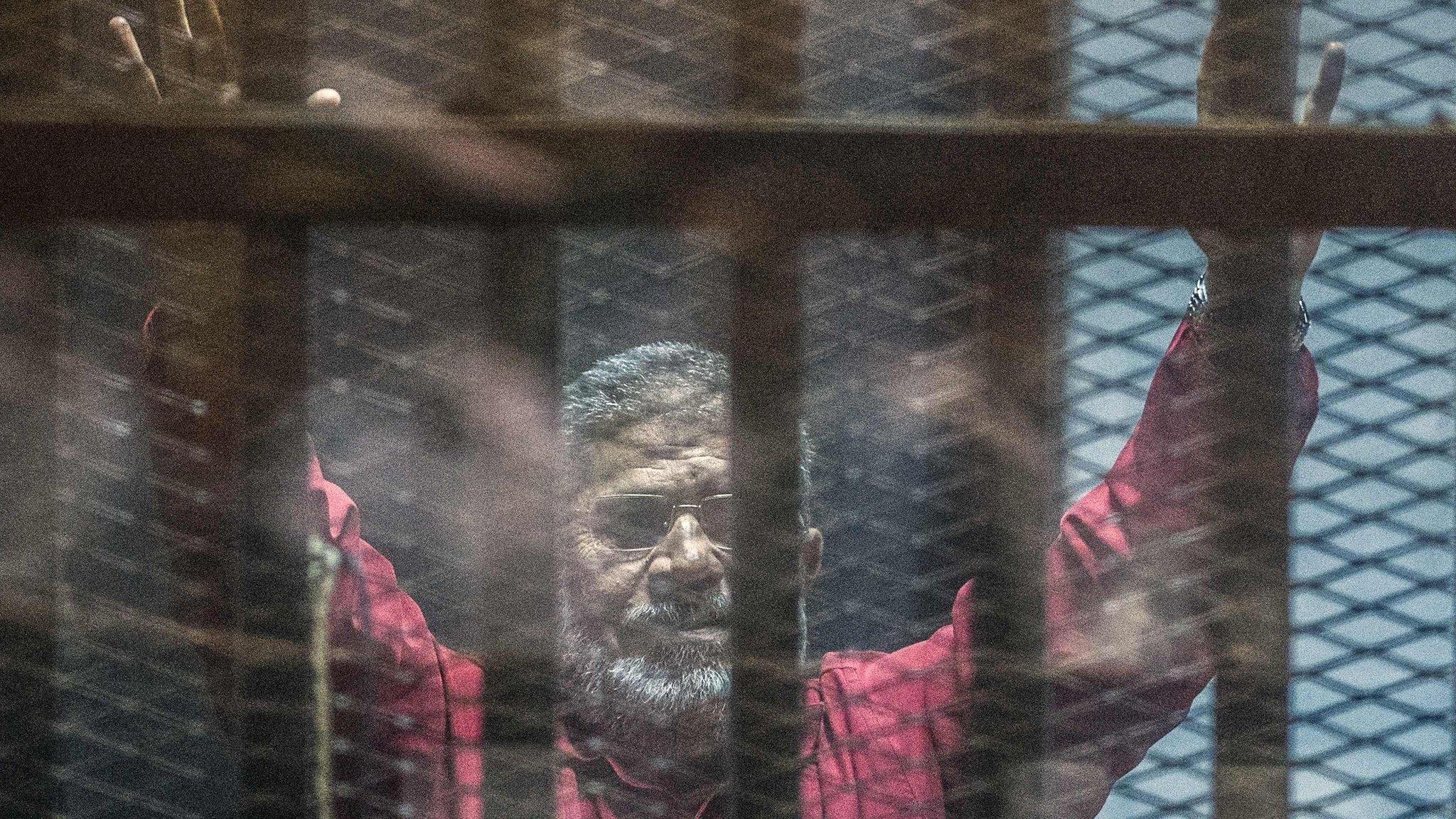Egypt's Mohammed Morsi: A turbulent presidency cut short
- Published
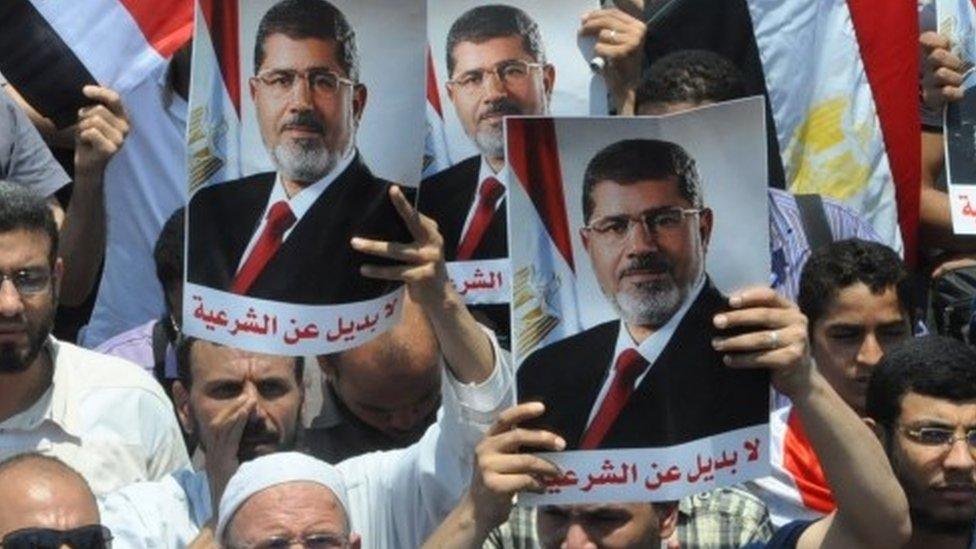
Morsi became Egyptian president following the ousting of Hosni Mubarak two years earlier
Mohammed Morsi was Egypt's first democratically elected president, but lasted only one year in power before being ousted by the military on 3 July 2013.
The military's move followed days of mass anti-government protests and Morsi's rejection of an ultimatum from the generals to resolve Egypt's worst political crisis since Hosni Mubarak was deposed in 2011.
Four months after he was toppled, Morsi went on trial alongside 14 senior figures from the Islamist Muslim Brotherhood movement, accused of inciting his supporters to murder a journalist and two opposition protesters, and ordering the torture and unlawful detention of others.
The charges related to clashes between opposition protesters and Muslim Brotherhood supporters outside the Ittihadiya presidential palace in Cairo in December 2012.
At the first hearing, he shouted from the dock that he was the victim of a "military coup" and rejected the authority of the courts to try him.
He was acquitted of murder but jailed for 20 years for ordering the torture and detention of protesters. Morsi subsequently faced a raft of other charges, and was sentenced to death, although the conviction was overturned.
He was on trial for espionage when he died in court on 17 June 2019.
Islamist MP
Mohammed Morsi was born in the village of El-Adwah in the Nile Delta province of Sharqiya in 1951.
He studied Engineering at Cairo University in the 1970s before moving to the United States to complete a PhD.
After returning to Egypt he became head of the engineering department at Zagazig University.
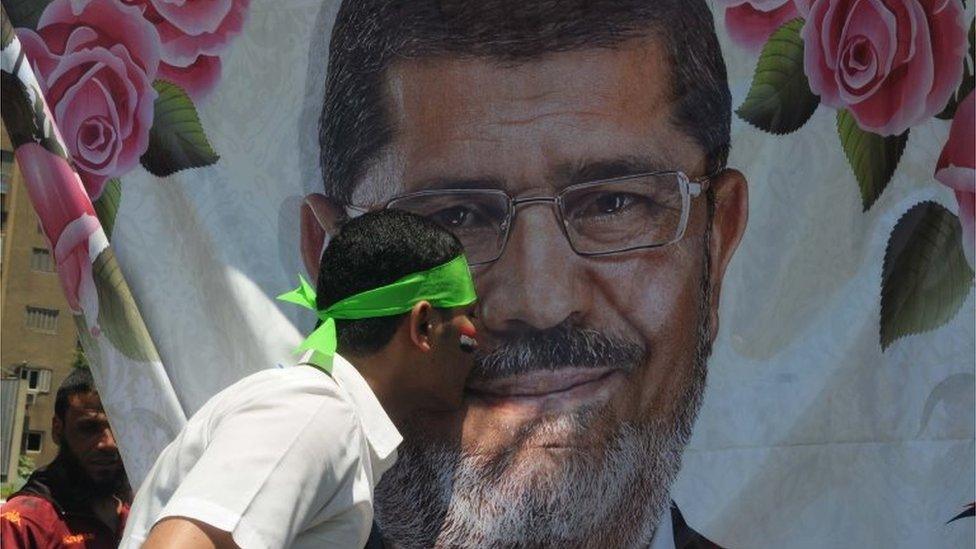
Morsi was elected president by a narrow margin
He rose through the ranks of the Muslim Brotherhood and served as an independent in the movement's parliamentary bloc from 2000 to 2005.
As an MP, he was occasionally praised for his oratorical performances, for example after a rail disaster in 2002 when he denounced official incompetence.
Morsi was chosen as the Muslim Brotherhood's presidential candidate in April 2012 after the movement's deputy general guide, millionaire businessman Khairat al-Shater, was forced to pull out.
In his election campaign, Morsi presented himself as a bulwark against any revival of the old guard of Hosni Mubarak.
Mass protests
When he came to power in June 2012 after a narrow election victory, Morsi promised to head a government "for all Egyptians".
But critics complained he had failed to deliver during his turbulent year in office. They accused him of allowing Islamists to monopolise the political scene, concentrating power in the hands of the Muslim Brotherhood.
Moreover, they said he had mishandled the economy and failed to deal with the very issues that led to the uprising that brought him to power: calls for rights and social justice.
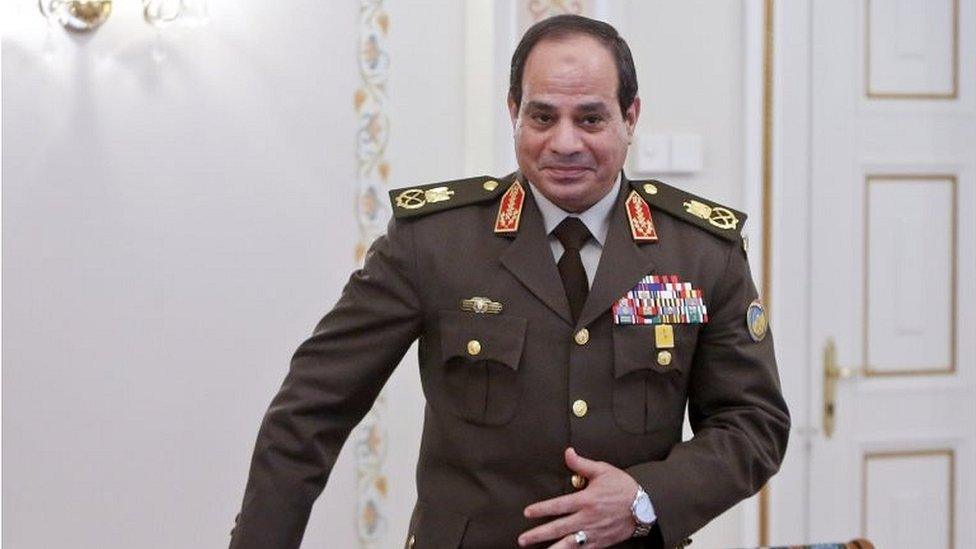
The then army chief Abdul Fattah al-Sisi ordered Morsi's removal
Public opposition to Morsi began building in November 2012 when, wishing to ensure that the Islamist-dominated constituent assembly could finish drafting a new constitution, the president issued a decree granting himself far-reaching powers.
Amid increasing unrest, Morsi issued a further decree authorising the armed forces to protect national institutions and polling places until a referendum on a draft constitution was held on 15 December 2012.
Critics said that decree amounted to a form of martial law and clashes between Morsi's opponents and supporters left more than 50 people dead.
Mass protests were held to mark the first anniversary of the day Morsi took office, and millions took to the streets across Egypt.
'Coup'
The military warned Morsi that it would intervene if he did not satisfy the public's demands within 48 hours.
On the evening of 3 July, the army suspended the constitution and announced the formation of a technocratic interim government ahead of new presidential elections.
Morsi denounced the action as a "coup". His arrest was ordered by then armed forces chief - and now president - Abdul Fattah al-Sisi - and he was taken by the army to an undisclosed location, and was not heard from for weeks.
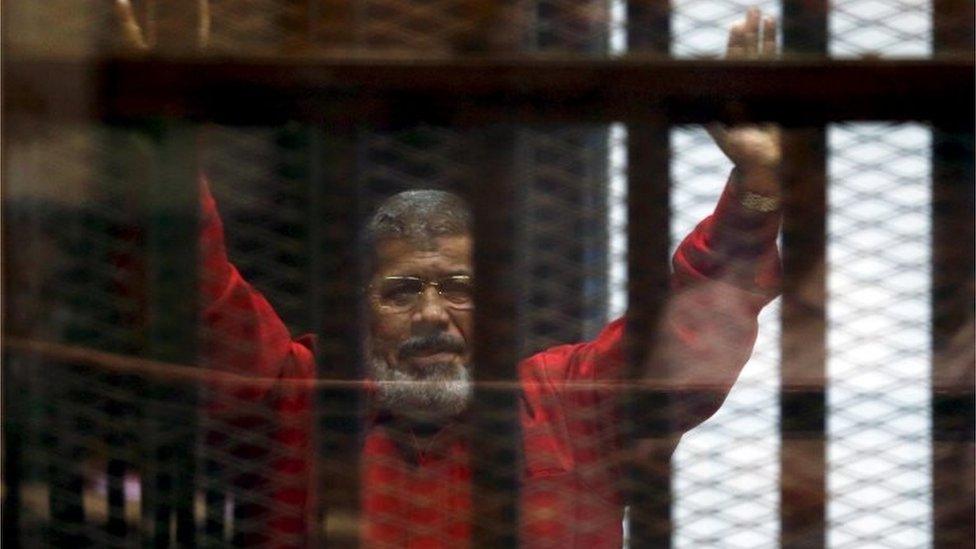
Morsi received the death penalty, which was later overturned
His supporters took to the streets of Cairo, demanding his release and immediate return to power.
The army responded by breaking up two protest camps in the capital by force on 14 August and arresting key Brotherhood figures.
Almost 1,000 people were killed in a crackdown the interim authorities portrayed as a struggle against "terrorism".
In the years that followed Morsi's removal, Egypt witnessed an upsurge of violence by Islamist insurgents, and a brutal crackdown on the Brotherhood movement which was declared a terrorist group.
Morsi disappeared from public view, apart from periodic court appearances. In the meantime, his predecessor Hosni Mubarak was freed from jail - a signal to many that Egypt had not particularly moved on since before the elections which brought Morsi, briefly, to power.
- Published17 June 2019
